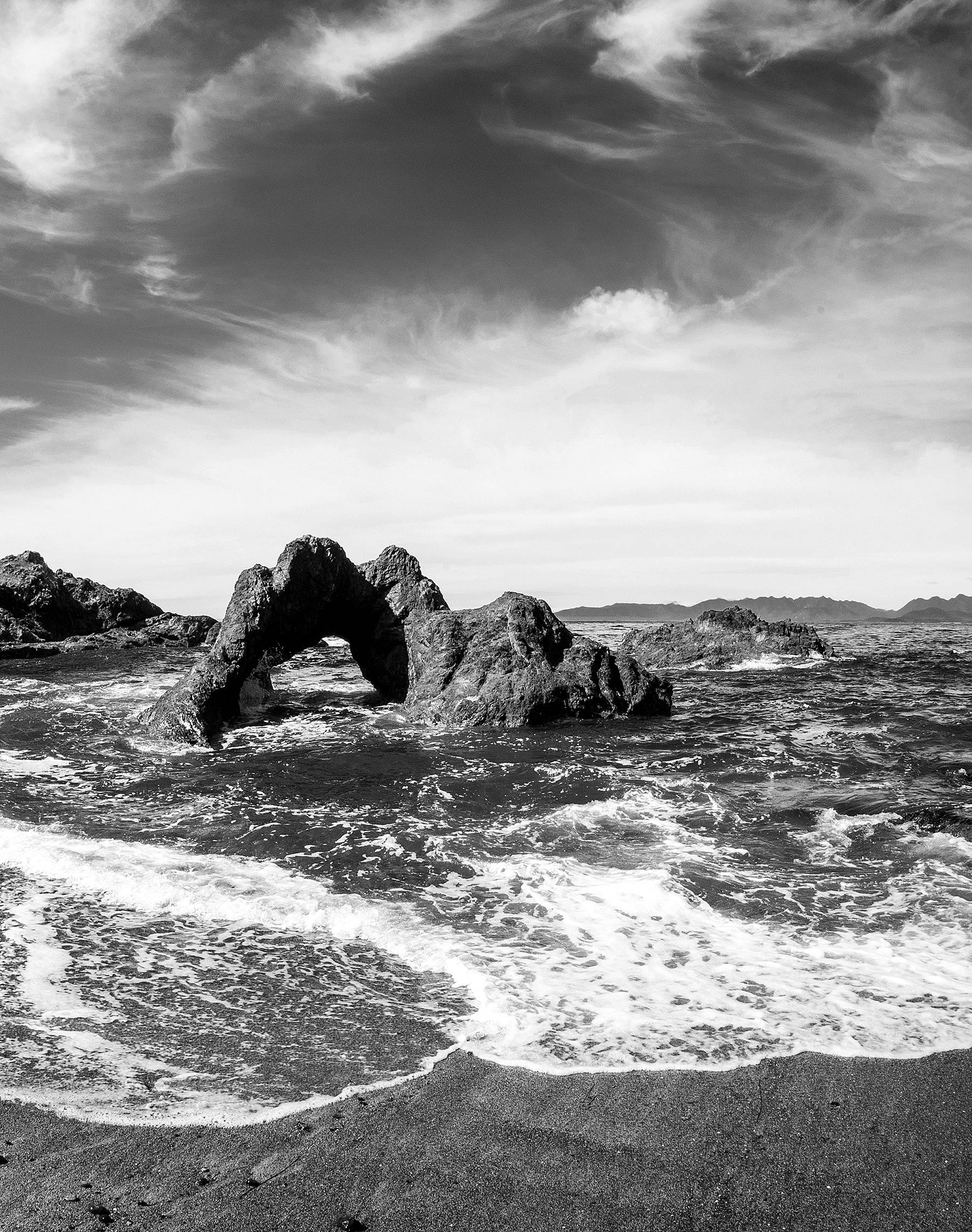By Jan Scilipoti
At Chimera Gallery starting Oct. 13 — two artists’ response to a shared journey.
This was not Summer Moon’s first kayak trip to the west coast of Vancouver Island, but it was mine. It took two days of driving and ferry travel just to get to the departure dock. At the time we went, there were over 500 fires burning on the mainland of British Columbia, and dozens on Vancouver Island. We drove the final 74 kilometers on a rough one-lane road at night, eyes and throat stinging from the smoke. We passed an entire ridge of trees in flames, outlined red against the dark sky.
From the dock, Summer Moon paddled for three days with 16 other kayakers to reach the camping beach. I opted for the easy transport – an hour and a half in a boat owned by a local Native American. We couldn’t see much, as the smoke severely impaired visibility. We could see enough to get it, though. We were Out There.
As if to underscore how far we’d gone from home, on my first afternoon I took a walk. We strolled a wide sandy beach, following several sets of footprints of others who had walked there that morning: two cougars, a wolf, and a bear. There is nothing quite like knowing that wild predators were enjoying the same view merely hours before.
Drinking (filtered) water from a stream; big skies; dark, dark nights. And — trash. Lots of trash. Little trash and big trash. Colorful trash and scary trash. What had been in that barrel? We looked for language for a clue as to where it originated. English. It’s our trash. We have all heard about the wastelands of trash in the oceans. But somehow, seeing it out there next to cougar tracks felt especially invasive.
There were other indicators of human meddling besides the fires and the trash. Our boat captain pointed out a floating farm as we motored past. It had been approved for shellfish farming only. After three years of raising scallops, the owner had switched to salmon. The Tribe is fighting it, concerned that the farm fish are transmitting disease and lice to the wild salmon in the region. He also told us about seiners that have recently started harvesting small feeder fish from the area. The fish are made into pellets, which are then sold as food for the fish farms. Another hit against the wild fish, who will miss their food supply.
Journeys have a magical way of tapping at your intuitions. This was a big one, reminding me to sleep on the ground, follow the sky through the day into night, and share the days with friends. It also announced what I knew but had not internalized: we have gone too far. Humans have impacted the natural systems to the point that they are no longer able to support the complex web of life for all.
Our southern-resident orca whales are already expressing the systemic decline. They are mammals, top of their food chain. They are literally starving in the beautiful waters surrounding our islands. We look at the lovely sunsets and it is hard to believe that the water could be full of plastic, toxins, and noise – but not so full of fish. Believe it.
On the beach, I found a discarded toothbrush with the word “Between.” An apt description, I thought, for where we are in history. Between an earth of natural beauty, abundance and diverse species, and – what? What comes next? I for one am ready to change my lifestyle, in hopes that what comes next is the rejuvenation of natural systems for all plants and creatures. The Lopez community is coming together to respond to the plight of the southern-resident Orcas. Summer Moon and I will be donating to local groups as part of our show, and encourage everyone to join in the effort.
Please join us at Chimera Gallery on Saturday, Oct. 13 from 5–7 p.m. for the opening reception.



